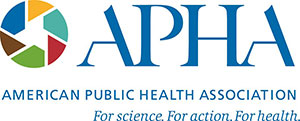The Abstract was presented at the American Public Health Association (APHA) 2022 in Boston, USA between 6 – 9 November 2022

Authors: Maria Mkandawire1, Fatsani Gadama 1, Nennie Lungu1, Boniface Maket1, Linda Muyumbu1, Matthew Kankhulungo1, Patrick Gwaza1, Pius Mtike1, Yona Nyondo1, Jennifer Arney2, Elled Mwenyekonde3, Ruth Kundecha ,3 Kumbukani Chawinga3 Grace Kumwenda 3 Patricia Magombo3
1 FHI 360, Malawi EMPOWER
2 FHI 360, Washington DC
3 CHAM, Malawi EMPOWER Activity
4 Pakachere , Malawi EMPOWER Activity
Introduction:
Oral Pre-exposure Prophylaxis is proven to be highly effective as an additional HIV Prevention method to reduce the risk of HIV acquisition (2021 Centers for Disease Control). In October 2020, the Ministry of Health, Malawi adopted and approved the roll out of PrEP nationwide as an HIV prevention method for use particularly amongst those who are at substantial risk of contracting HIV infection ( Malawi PrEP guidelines 2020). The Malawi PrEP guidelines indicate that PrEP will be delivered in facilities and Drop-in Centers ( DICs). Barriers to accessing PrEP services in hybrid facilities included distances to certified PrEP service delivery sites, stigma associated with the use of antiretroviral drugs which are accessed in ART clinics in facilities, long queues at the facility and limited number of qualified health care workers in facilities. The Expanding Malawi HIV/AIDS Prevention with Local Organizations Working for an Effective Epidemic (EMPOWER) project rolled out PrEP targeting AGYW by providing PrEP information at club and community level and referring to hybrid facilities for PrEP initiation. This abstract highlight service delivery adaptations for PrEP information and initiation among AGYW at the community in EMPOWER’s implementing districts of Machinga and Zomba.
Methodology:
In May 2021, EMPOWER rolled out PrEP at community level having trained its service providers conducting service delivery in the communities. AGYW meeting the national criteria for PrEP initiation were actively referred from mobile clinical outreach sites to certified PrEP service delivery facilities after accessing detailed information from outreach service delivery teams on use of PrEP. AGYW were assisted at the facility to navigate the system by EMPOWER Linkage and referral coordinators and then referred back to the community for adherence support through PrEP champions and DREAMS Ambassadors.
Lesson Learned:
EMPOWER bridged the gap on long distances to PrEP service deliver sites by conducting active referrals escorting AGYW to nearest health facilities offering PrEP and through strong collaboration by Malawi EMPOWER with facility partners to provide PrEP information and PrEP initiation support at community level this has contributed to an increase in the number of AGYW accessing PrEP information from 1,114 in FY21 to 3,338 in FY22 Q2. Furthermore, the project has seen an increase in the number of AGWY initiated on PrEP from 165 in FY21 to 696 in FY22.
Conclusions:
Successful PrEP implementation at scale for AGYW requires adaptations in service delivery as most AGYW prefer to access PrEP in non-clinincal settings. A combination of facility and community-based settings are required to address issues of stigma and discrimination and distances to certified PrEP service delivery sites which are barriers to PrEP service uptake.
FHI-360 - Malawi EMPOWER
Bluegum Avenue, Mulima Building,
P.O. Box 521
Zomba
Malawi
Phone: +265 887 827 291
E-mail:BMaket@fhi360.org
Website: www.malawiempower.org
